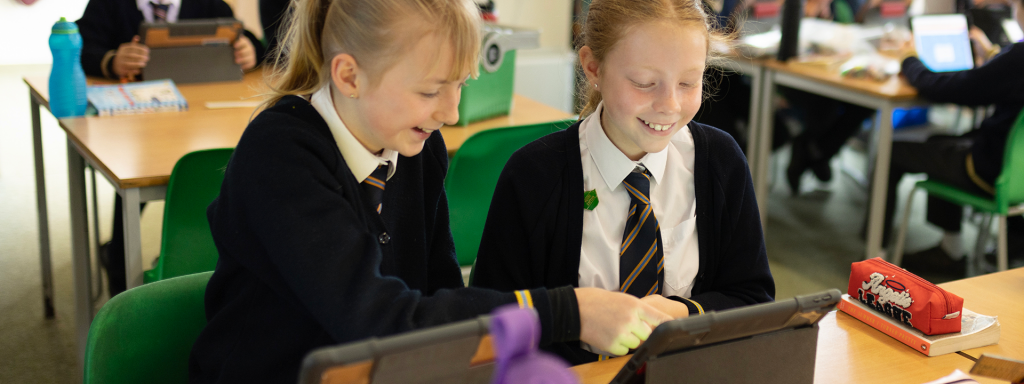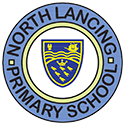
Intent
At North Lancing Primary School we want our learners to be adaptable, ambitious and digitally literate users of technology. The area of Computing is ever-changing and we want to adequately prepare children to enter into a world of technology feeling prepared, confident and supported.
Our aim is to provide a Computing curriculum that balances a broad knowledge of information technology, computer systems and internet safety with a comprehensive set of skills that enable our learners to be digitally literate. To enable this, teachers try and embed the values of digital literacy across the whole curriculum to make learning creative and accessible.
Implementation
Our curriculum has been devised with the building of core knowledge, key vocabulary and essential skills in mind taught through discrete lessons each week. Each year group progressively investigates the core four concepts of: computing systems and networks, media creation, programming and handling data and information. Each stage clarifies and cements previous knowledge from the year groups before whilst building up new concepts, knowledge and skills. Lessons have been devised using up to date, research-based pedagogical strategies to enable the best learning and progress for all children.
Impact
Learning is demonstrated across each key area of Computing by discussing, reflecting, evaluating and appreciating the why behind each area, and not just the how. We celebrate each topic of learning by sharing, showcasing, publishing and celebrating children’s efforts, achievements and final products with their peers, teachers and the wider school. Children’s learning is shown through the planned outcomes for all children and the coverage in the process of achieving these outcomes.
By the end of their time at North Lancing Primary School, pupils:
- can understand and apply the fundamental principles and concepts of computer science, including abstraction, logic, algorithms and data representation
- can analyse problems in computational terms, and have repeated practical experience of writing computer programs in order to solve such problems
- can evaluate and apply information technology, including new or unfamiliar technologies, analytically to solve problems
- are responsible, competent, confident and creative users of information and communication technology.
